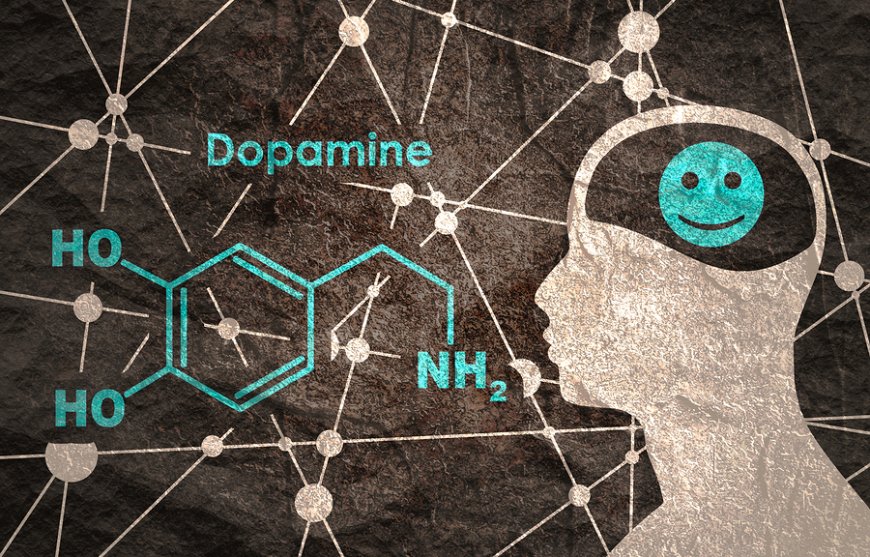Dopamine Fasting: The Key to Mental Clarity and Motivation or Just Another Trend?
Can dopamine fasting improve mental clarity and motivation? Discover the science, benefits, and practical tips for resetting your brain’s reward system.

In a world filled with endless notifications, instant entertainment, and constant stimulation, many people find themselves feeling mentally drained, unfocused, and unmotivated. This has led to the rise of "dopamine fasting," a practice that promises improved mental clarity, increased motivation, and better self-control. But does it really work, or is it just another wellness fad? Let’s explore the science, benefits, and potential downsides of dopamine fasting.
What is Dopamine Fasting?
Dopamine fasting is a practice where individuals intentionally avoid stimulating activities for a certain period. The goal is to reset the brain’s reward system, reduce dependency on instant gratification, and improve focus and motivation.
Dr. Cameron Sepah, a clinical psychologist, popularized the concept in Silicon Valley. He explained that dopamine fasting isn’t about completely eliminating dopamine (which is biologically impossible) but rather about reducing compulsive behaviors linked to excessive stimulation.
Common Activities People Avoid During Dopamine Fasting
- Social media and excessive screen time
- Video games and television
- Junk food and sugary snacks
- Music and entertainment
- Excessive talking and social interactions
- Gambling and online shopping
The Science Behind Dopamine and Motivation
Dopamine is a neurotransmitter that plays a key role in pleasure, motivation, and reward-seeking behavior. It is often associated with feelings of happiness and excitement. However, excessive stimulation from modern technology and instant gratification can lead to a dopamine imbalance.
When we engage in highly stimulating activities frequently, our brain adapts by reducing dopamine sensitivity. This can lead to:
- Decreased motivation (since normal tasks no longer feel rewarding)
- Reduced attention span (making it harder to focus)
- Increased impulsivity (leading to procrastination and poor decision-making)
By temporarily reducing stimulating activities, dopamine fasting aims to help the brain regain its natural sensitivity to rewards, making everyday tasks feel more engaging and fulfilling.
Potential Benefits of Dopamine Fasting
1. Improved Mental Clarity
Without the constant flood of digital distractions, many people report enhanced focus, better decision-making, and greater awareness of their thoughts and emotions.
2. Increased Motivation and Productivity
By resetting the brain’s reward system, simple activities like reading, exercising, and working become more rewarding, leading to increased motivation.
3. Better Self-Control
Avoiding impulsive behaviors helps strengthen self-discipline, making it easier to resist distractions and unhealthy habits.
4. Reduced Stress and Anxiety
Constant stimulation can overload the brain and contribute to stress. Dopamine fasting provides a mental break, allowing for relaxation and emotional balance.
5. Enhanced Enjoyment of Everyday Life
Many participants report that after a dopamine fast, they experience more joy in simple activities like walking, listening to music, or having a conversation.
Does Dopamine Fasting Really Work?
While anecdotal evidence suggests that dopamine fasting can be beneficial, scientific research on the topic is limited. However, the core idea of reducing overstimulation aligns with well-established psychological and neurological principles.
Many experts believe that rather than a strict "fast," the key is to practice dopamine regulation by:
- Setting boundaries on screen time and social media use
- Engaging in deep work without distractions
- Prioritizing real-world interactions over digital ones
- Practicing mindfulness and meditation
Potential Downsides and Criticisms
1. Misunderstanding of Dopamine’s Role
Some critics argue that dopamine fasting is based on a misunderstanding of how dopamine works. Dopamine is essential for motivation and daily functioning, and completely eliminating it is neither possible nor desirable.
2. Temporary Effects
While dopamine fasting can provide short-term benefits, it is not a permanent solution. Long-term improvement in mental clarity and motivation requires consistent lifestyle changes.
3. Can Be Taken to Extremes
Some individuals take dopamine fasting to unhealthy extremes by avoiding all pleasurable activities, which can lead to feelings of deprivation and even social isolation.
How to Try Dopamine Fasting the Right Way
If you’re interested in dopamine fasting, consider a balanced approach rather than extreme deprivation. Here’s a simple way to start:
- Choose a duration – Start with a few hours or a full day instead of long periods.
- Identify your triggers – Pinpoint the activities that overstimulate you (e.g., social media, gaming, binge-watching).
- Engage in low-stimulation activities – Try reading, journaling, meditation, or spending time in nature.
- Reflect on the experience – Notice how you feel afterward. Do you experience better focus and motivation?
- Make long-term changes – Instead of strict fasting, aim to create healthier habits around dopamine-inducing activities.
Conclusion
Dopamine fasting is not a magic solution, but it can be a useful tool for improving mental clarity and motivation. By reducing overstimulation and practicing mindful habits, you can regain control over your focus, productivity, and overall well-being.
Rather than depriving yourself completely, focus on dopamine regulation—balancing rewarding activities with periods of low stimulation. This way, you can enjoy the benefits of dopamine fasting without extreme restrictions.
Would you try dopamine fasting? Let us know in the comments!
What's Your Reaction?
 Like
0
Like
0
 Dislike
0
Dislike
0
 Love
0
Love
0
 Funny
0
Funny
0
 Angry
0
Angry
0
 Sad
0
Sad
0
 Wow
0
Wow
0



















































